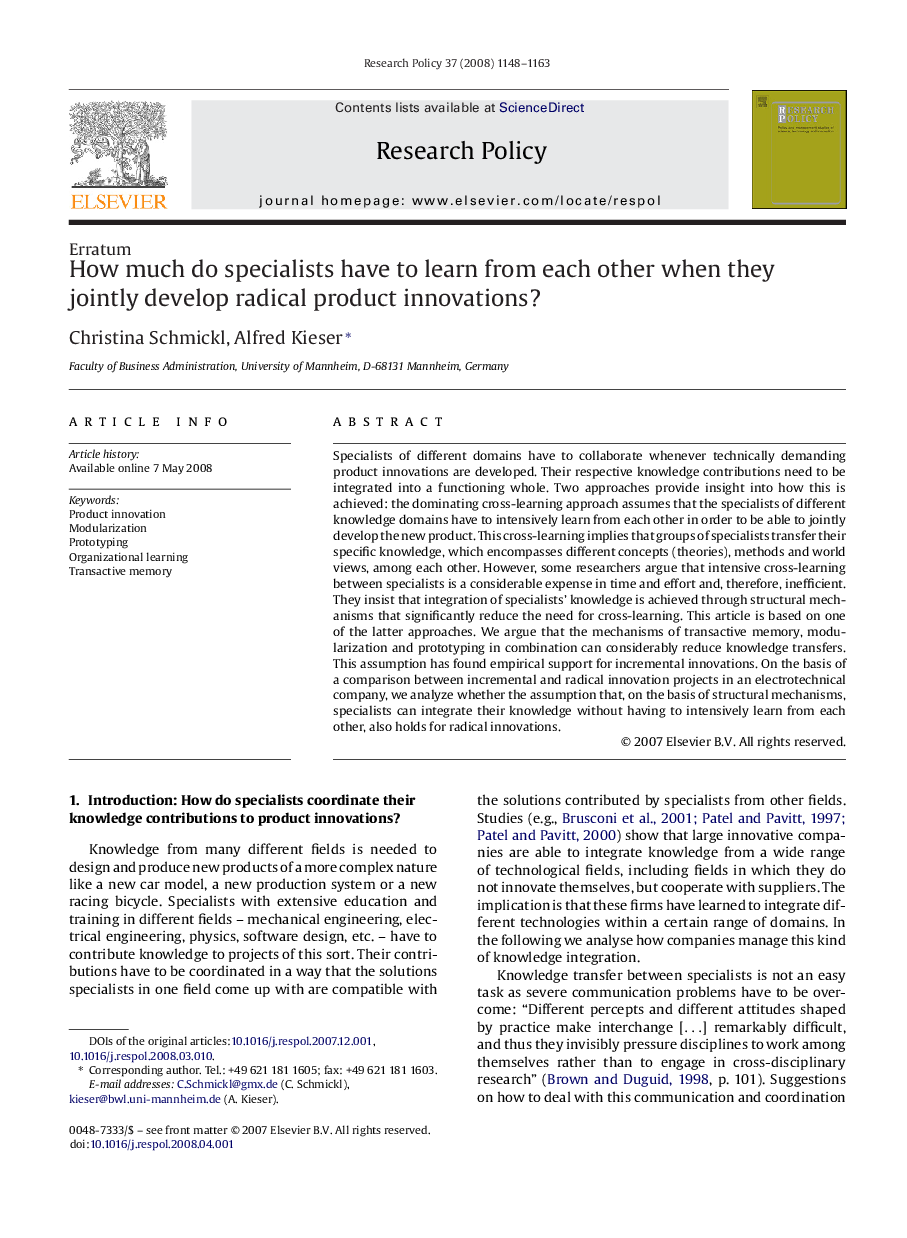| کد مقاله | کد نشریه | سال انتشار | مقاله انگلیسی | نسخه تمام متن |
|---|---|---|---|---|
| 984266 | 1480593 | 2008 | 16 صفحه PDF | دانلود رایگان |

Specialists of different domains have to collaborate whenever technically demanding product innovations are developed. Their respective knowledge contributions need to be integrated into a functioning whole. Two approaches provide insight into how this is achieved: the dominating cross-learning approach assumes that the specialists of different knowledge domains have to intensively learn from each other in order to be able to jointly develop the new product. This cross-learning implies that groups of specialists transfer their specific knowledge, which encompasses different concepts (theories), methods and world views, among each other. However, some researchers argue that intensive cross-learning between specialists is a considerable expense in time and effort and, therefore, inefficient. They insist that integration of specialists’ knowledge is achieved through structural mechanisms that significantly reduce the need for cross-learning. This article is based on one of the latter approaches. We argue that the mechanisms of transactive memory, modularization and prototyping in combination can considerably reduce knowledge transfers. This assumption has found empirical support for incremental innovations. On the basis of a comparison between incremental and radical innovation projects in an electrotechnical company, we analyze whether the assumption that, on the basis of structural mechanisms, specialists can integrate their knowledge without having to intensively learn from each other, also holds for radical innovations.
Journal: Research Policy - Volume 37, Issues 6–7, July 2008, Pages 1148–1163